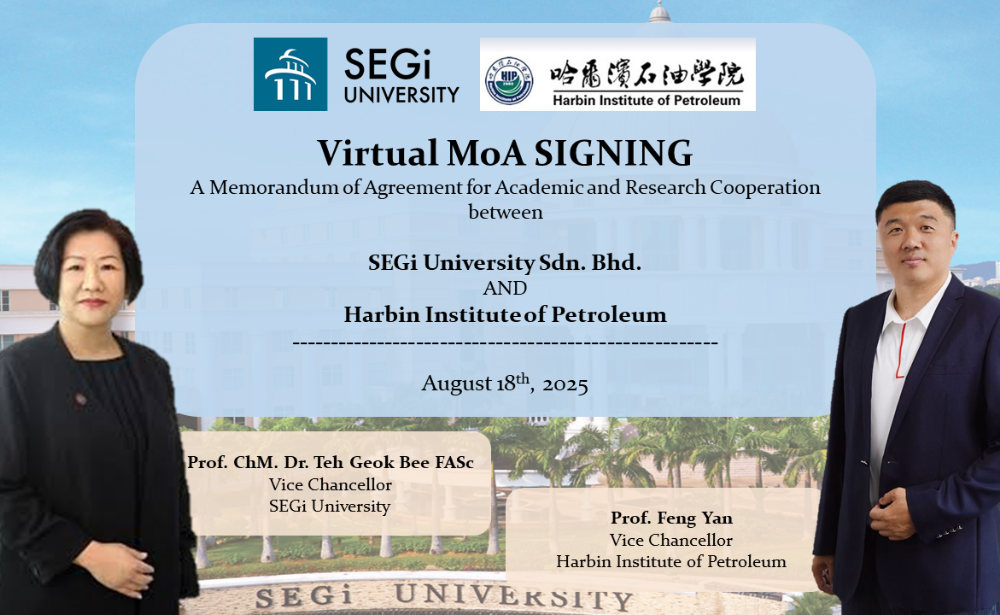Harbin Institute of Petroleum and SEGi University have formalised a Memorandum of Agreement (MoA) on 18 August 2025 to launch pioneering research into next-generation battery technology. This collaboration represents a milestone in clean energy research, strengthening cross-border academic partnerships while addressing the urgent global demand for sustainable energy solutions.
The joint research project, titled “MOF-Enhanced Solid Electrolyte for High-Energy Li-Air Batteries: An Optimisation Study”, focuses on the application of Metal-Organic Frameworks (MOFs) to enhance solid electrolytes. This innovation is seen as a promising pathway to higher energy density, greater efficiency, and improved safety in Li-air batteries, a technology with the potential to outperform today’s lithium-ion systems. With energy storage being the backbone of electrification, this partnership underscores the commitment of both universities to shaping the future of sustainable mobility and power systems.
SEGi University, together with Harbin Institute of Petroleum, is combining expertise across chemical engineering, materials science, and energy technology to create impactful research outcomes. The project not only advances technical breakthroughs but also deepens academic exchange, joint publications, and long-term collaboration, ensuring students and researchers are at the forefront of scientific innovation.
The significance of this collaboration goes beyond academia. The International Energy Agency (IEA) projects that the global battery market could grow tenfold by 2030, with demand for electric vehicles alone requiring 3,500 GWh of battery capacity (IEA). Malaysia, meanwhile, has set a national goal for electric vehicles to represent 15% of total industry volume by 2030 (MITI). Research such as this ensures Malaysia is not a passive consumer of green technologies but an active contributor to the global clean energy ecosystem.
The MoA also reinforces why SEGi continues to prioritise international collaborations: to give its academic community access to global expertise while aligning local research with global challenges. By equipping students and researchers with opportunities to contribute to high-impact solutions, SEGi is strengthening Malaysia’s role in the sustainable energy transition and preparing the next generation of engineers and scientists to lead it.
This collaboration is organised in support of the following United Nations Sustainable Development Goals (SDG):
SDG 7: Affordable and Clean Energy
SDG 9: Industry, Innovation and Infrastructure
SDG 17: Partnerships for the Goals

